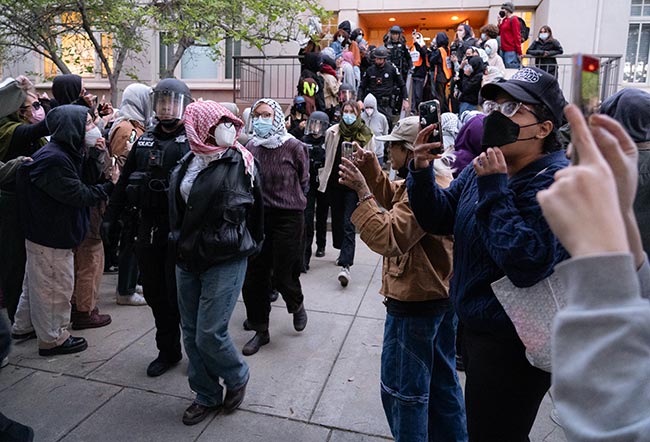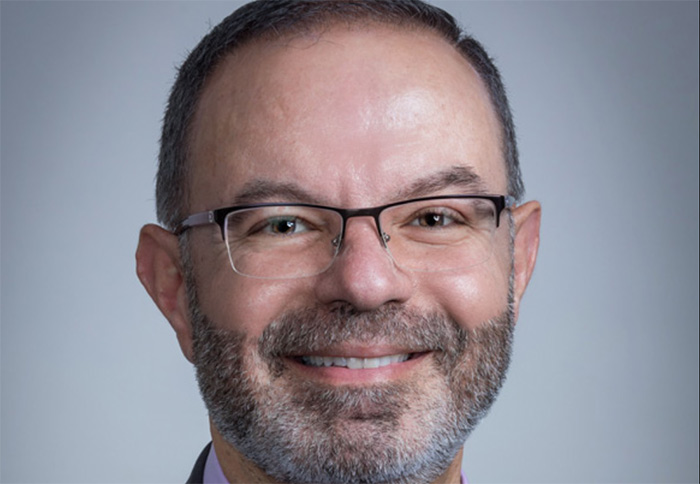School of Theology president expands goals, vision
The Reverend Dr. Kah-Jin Jeffrey Kuan, who will be inaugurated on Wednesday, October 23 as the seventh president of the Claremont School of Theology, is looking forward to helping the local theological school grow both in the number of students and scope of its vision.
CST has evolved in recent years to become an institution where the study of faiths other than Christianity is not just an elective option, but an integral part of the school’s curriculum.
Much of this cross-pollination has been made possible by the institution of the affiliated Claremont Lincoln University, an ecumenical and inter-religious institution that CST co-founded in 2011.
Claremont Lincoln’s other founders include the Islamic Center of Southern California and the Academy for Jewish Religion, California. The school is working to expand its affiliation with other groups, most recently collaborating with the International School for Jain Studies and the Federation of Jain Associations in North America to initiate the International School for Jain Studies at Claremont Lincoln.
The students of CST seek an education that will prepare them for careers in areas such as church leadership, education or scholarship, primarily in a Christian context. Increasingly, however, they are looking to be able to work hand-in-hand with people of other faiths in order to maximize their impact and to acknowledge the global flavor of life today.
“There is a lot of excitement on campus. The faculty is very committed to the kind of theological education we are now offering at CST,” Rev. Kuan said.
The emphasis on understanding multiple faiths, even as students delve deeper into their own, is a trend that has expanded in the wake of 9/11. For Rev. Kuan, an ordained elder in the United Methodist Church, it is nothing new. A first generation Asian American of Chinese ancestry, he is deeply influenced by the fact that he was born and raised in Malaysia in a multi-ethnic, multi-religious context.
“Later, going to seminary involved courses in other religious traditions, such as Islam, Hinduism and Buddhism,” he said. “The need to know what other people believe is something I’ve held strongly with me for the longest time.”
True understanding does not spring from the mere study of different cultures and philosophy, Rev. Kuan said.
“We’re trying to create a new model of religious education where we have people from across different faiths be in the classroom together,” he explained. “It’s not just an intellectual pursuit.
“In many ways, we need to go beyond finding common ground, because that only goes so far,” he continued. “We have to find a way to live with our differences. We’re trying to create a different kind of world. Not too many societies have learned to do that.”
As idealistic as this goal may sound, it is also proving to be practical. The Claremont School of Theology, along with many other theological institutions, has faced some tough times in recent years, due in large part to the recession. For theological schools, economic problems are exacerbated by the fact that their alumni, given the fields to which they gravitate, tend to not have very deep pockets.
The school’s enrollment was also adversely impacted when CST lost its accreditation in 2006, although the school quickly regained its accredited status. At its nadir, CST had an entering class of only 50 students.
CST currently has a total of 125 full-time equivalent students. Rev. Kuan would like to see that number raised to the amount of students the school has room for, 400. This year, between the Claremont School of Theology and the Claremont Lincoln University, the entering class was 100. If this trend continues for the next few years, CST will be back to full capacity by 2018. Rev. Kuan is optimistic that the school will continue to grow.
“Students are coming here because of the re-branding that has happened the last couple of years with a new emphasis on inter-religious education,” he said. “We are clearly on the trajectory of becoming the kind of school we used to be.”
Attention to multi-religious issues is not the only growing trend in religious education. There is also an increased conversation about gender and LGBTQ issues such as the role of women and of gay and transgender people in church leadership. While Rev. Kuan says CST would like to remain open to students wherever they fall on the theological spectrum, he characterizes the institution as being “more on the progressive side of Christianity.” A couple of years ago, CST created the Center for Sex, Gender and Religion, which he said was a very important step for the school to take.
Rev. Kuan earned a PhD in Old Testament from Emory University, an MTS from Perkins Theological School and a Bachelor of Theology from Trinity Theological College in Singapore. He last served as dean of Drew University Theological School and, before that, spent nearly 20 years on the faculties of the Pacific School of Religion and Graduate Theological Union teaching in the areas of the Hebrew Bible and Asian and Asian-American hermeneutics.
Rev. Kuan, who authored numerous publications related to biblical interpretation in Asian and Asian American contexts, explained this area of interest.
“Over the years, biblical scholars began to see how important context is to our reading of the Bible. A number of us began to take seriously our Asian context and our Asian American identity,” he said.
Many Asian Americans share the experience of being “the perpetual foreigner,” as well as the public perception that they are “the model minority,” Rev. Kuan said. By looking at scripture through those lenses, he said he was able to understand certain biblical texts with new clarity.
Lately, however, Rev. Kuan has little time for scholarship. Along with his new administrative role, he currently chairs the Commission on Theological Education of the United Methodist Church University Senate. He also serves on the boards of the Reconciling Ministries Network and Asian American and Pacific Islander United Methodist Clergywomen Association, and chairs the Member Council of the Hispanic Theological Initiative Consortium.
Rev. Kuan also has a family, including his wife, Val Toh, two grown daughters and a granddaughter. And his plans for the School of Theology are many. Along with increasing the school’s multi-religious factor, he is working to grow its population by reaching out to minority groups such as Asian Americans, African Americans and Hispanics and to strengthen its internship program.
It’s a tall order, but Rev. Kuan is looking forward to the challenge.
“I hope to stay here a while to work with this institution so that it will thrive again,” he said.
Rev. Kuan’s inauguration will take place Wednesday, October 23 at 4 p.m. at the Chapel Lawn on the CST campus, 1325 N. College Ave. A reception in the Haddon Conference Center will follow. Guests are asked to RSVP to 447-2555.
—Sarah Torribio
storribio@claremont-courier.com








0 Comments